
Victory gardens
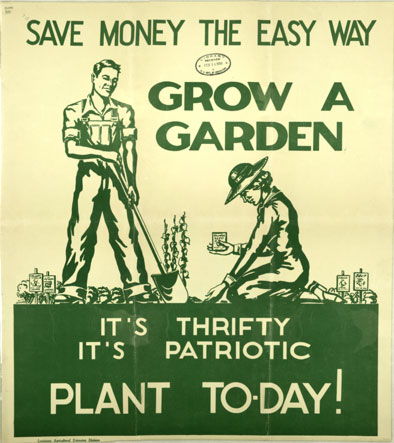
During World War II, 40%
of American vegetables came from 20 million victory gardens. With
American men fighting abroad, women were raising their kids alone,
working outside the home (to fill those men's jobs), and still finding
time to till up their backyard and grow food for their families.
(Doesn't that make you
feel a bit silly for saying you don't have time to plant a
garden? There's still time to put in lettuce and greens for the fall, by the way.)
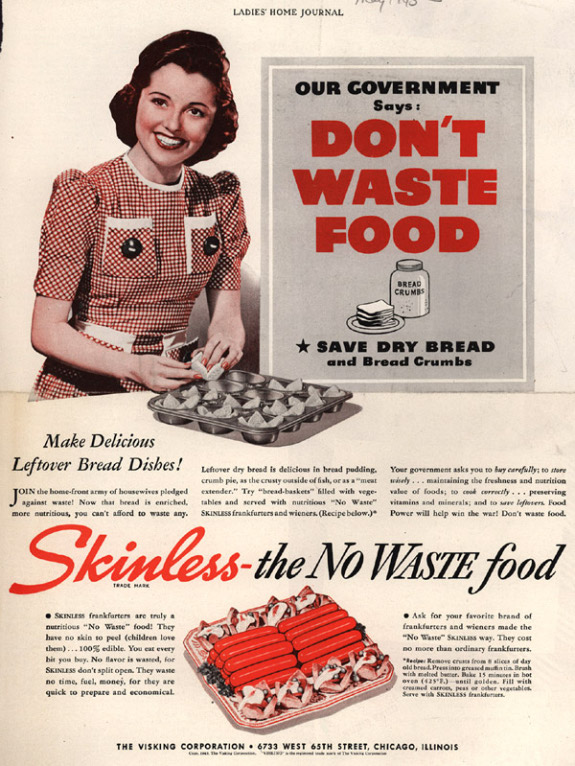
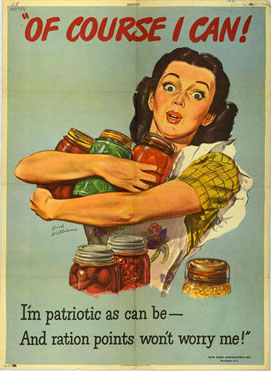
Posters like these from
both World Wars admonished women to plant a garden, can and dry the
excess, and never waste a crumb. The propaganda definitely worked
--- Americans ate potatoes instead of wheat so that the less perishable
grain could be sent abroad, and they generally managed to subsist on
what those remaining at home could grow.
As Sharon Astyk pointed
out in her fascinating
analysis of why and how we have been trained to believe that our
individual consumer choices make no difference to the world, victory gardens are clear
proof that your personal actions can have a worldwide impact.
Leading by example, you can even suck your friends and family into a
mode of eating that is lighter on the earth.
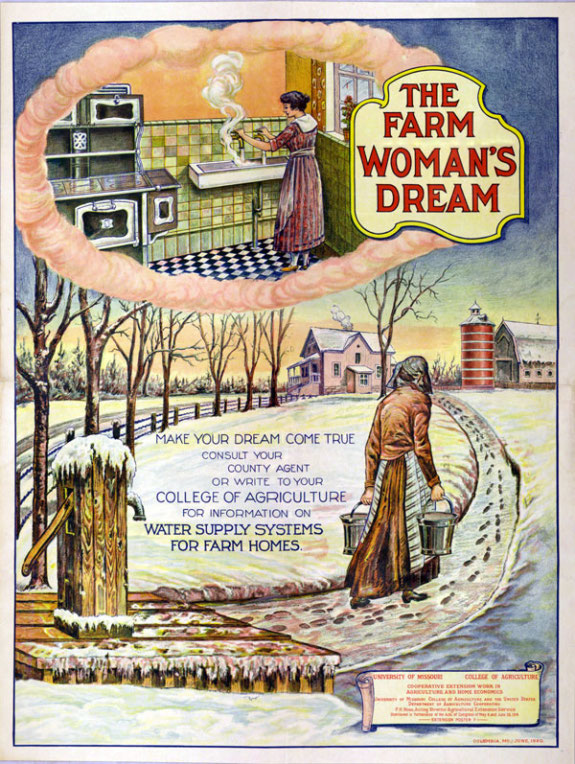
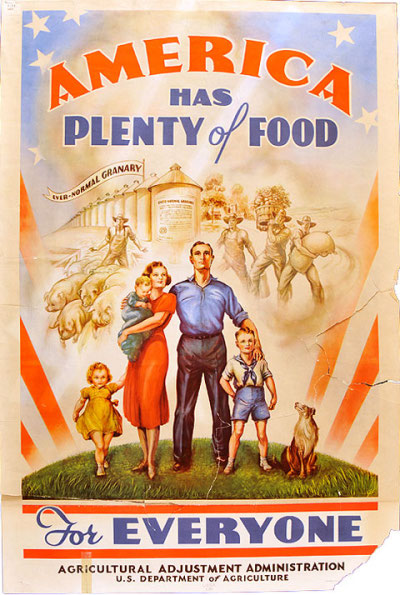 But
after the war ended, the propaganda took an abrupt about-face.
Suddenly, posters were telling us to buy, buy, buy! And, once
again, we followed along like sheep, dropped our shovels, and went out
to spend some money.
But
after the war ended, the propaganda took an abrupt about-face.
Suddenly, posters were telling us to buy, buy, buy! And, once
again, we followed along like sheep, dropped our shovels, and went out
to spend some money.
While I'm tempted to
talk here about our current government's admonitions to spend money to
prop up our ailing economy rather than striving to become more
self-sufficient, frugal, and debt-free on a personal level, I
won't. Instead, I think the takeaway message from the victory
garden campaign is clear --- think globally, act locally. If you
believe that the environment would benefit from food grown in an
ecologically conscious way, then look into permaculture and plant a
diversified garden. Anyone living anywhere can plant something,
preserve something, and cut back on food waste.
To see the source of
these posters (and peruse many more --- huge time sink, I warn you),
visit Beans
are Bullets, a
website/exhibition put together by the National Agricultural
Library.
Want more in-depth information? Browse through our books.
Or explore more posts by date or by subject.
About us: Anna Hess and Mark Hamilton spent over a decade living self-sufficiently in the mountains of Virginia before moving north to start over from scratch in the foothills of Ohio. They've experimented with permaculture, no-till gardening, trailersteading, home-based microbusinesses and much more, writing about their adventures in both blogs and books.
Want to be notified when new comments are posted on this page? Click on the RSS button after you add a comment to subscribe to the comment feed, or simply check the box beside "email replies to me" while writing your comment.
